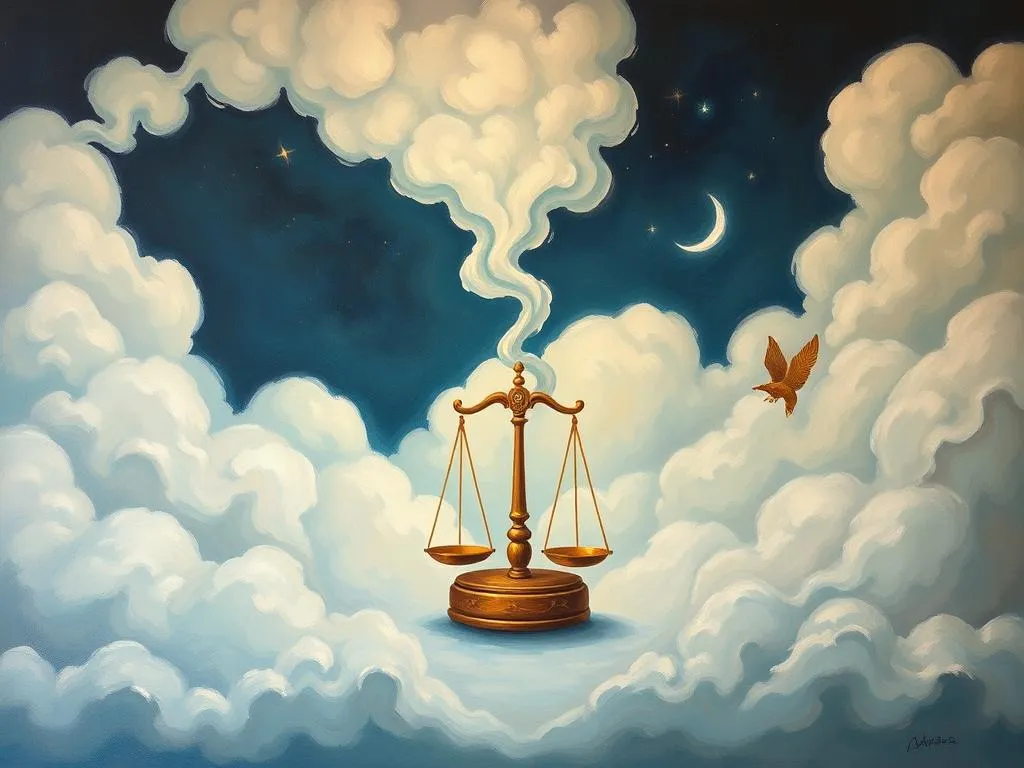
Have you ever woken up from a dream where you found yourself standing in a courtroom, your heart racing, and the weight of the world on your shoulders? Dreams of a court of law can feel intensely real, often leaving you with lingering questions and emotions. Whether you were the defendant, the judge, or a silent observer, these dreams can stir a cocktail of feelings—fear, anxiety, or even a sense of vindication. But what do they truly mean?
In the realm of dreams, courts can symbolize the ultimate judgment, both of ourselves and from others. They represent the moral dilemmas we face and the decisions we must confront in our waking lives. As we delve deeper into the symbols and scenarios surrounding these dreams, you may find that they reflect your inner struggles and aspirations in ways you never expected.
Understanding the Symbols
At its core, dreaming of a court of law embodies the concept of judgment. Such dreams often arise during times of personal conflict or decision-making. Psychologically, they may represent your subconscious grappling with feelings of guilt, accountability, or the need for validation. They can serve as a mirror, reflecting the inner battles we face about our choices and their consequences.
Culturally, interpretations of courtroom dreams can vary significantly. In Western contexts, a courtroom may symbolize authority and the consequences of actions. It can evoke feelings of vulnerability, especially if you perceive yourself as being judged unfairly. Conversely, in some Eastern cultures, a court setting may represent the karmic balance of actions, where every decision has a ripple effect on one’s life journey. Here, the dream may suggest that you are being called to reflect on your moral compass and the impact of your choices on yourself and others.
Modern psychology adds another layer to this interpretation. Many psychologists argue that dreaming of a courtroom often relates to feelings of guilt or inadequacy. It can signify an internal struggle with societal expectations or a fear of being “found out.” This perspective challenges a common misconception: that courtroom dreams are solely about external judgment. Rather, they frequently reflect our self-judgment and the pressures we impose on ourselves.
Common Scenarios
Let’s explore some vivid scenarios that might occur in these dreams, each carrying its own emotional weight and meaning.
-
The Stand of Accusation
Imagine yourself in a courtroom, standing in the defendant’s chair while a prosecutor passionately presents evidence against you. You feel exposed and vulnerable, your heart pounding in your chest. This dream may signify feelings of guilt or fear of being judged harshly by others. For example, Sarah, a young professional, often dreams of being accused in a courtroom after she procrastinates on a work project. It reflects her anxiety about meeting expectations and the fear of disappointing her colleagues. In everyday life, this scenario can remind you to confront the fears that hold you back, encouraging you to take proactive steps in your responsibilities. -
The Overbearing Judge
In another scenario, you may find yourself before a stern judge who seems to scrutinize every word you say. You feel small and powerless. This dream may symbolize your perception of authority figures in your life—perhaps a boss or a parent—making you feel judged or constrained. For instance, Tom, a college student, dreams of a judge dismissing his arguments in a debate class. This reflects his struggles with self-esteem and the pressure he feels to perform. This dream invites you to examine your relationship with authority and consider how you can reclaim your voice in those dynamics. -
The Jury of Peers
Picture yourself surrounded by a jury, their expressions a mix of confusion and judgment as you plead your case. You feel desperate to convey your innocence. This scenario often highlights the fear of public opinion and how you believe others perceive you. Emily, a social media influencer, has recurring dreams of a jury deliberating her online persona. This illustrates her anxiety about how her authenticity is judged in the public eye. It serves as a reminder to stay true to yourself, regardless of external perceptions. -
The Silent Observer
In this dream, you are merely an observer, watching a trial unfold without any direct involvement. You feel a sense of detachment, yet the emotions of the participants resonate deeply within you. This situation might suggest that you are grappling with feelings of powerlessness or that you’re witnessing a conflict in your life where you feel you cannot intervene. For example, Jake dreams of observing a courtroom drama between his friends, feeling helpless as they argue. This dream can prompt you to evaluate your role in conflicts around you and consider whether it’s time to step in or remain a bystander. -
The Acquittal
Finally, imagine a scenario where you are acquitted of all charges, and a wave of relief washes over you. This dream can represent a desire for redemption and a sense of freedom from guilt. Alex, who has been feeling pressured about a recent decision, dreams of walking out of a courtroom triumphant. This dream symbolizes a breakthrough in self-acceptance and forgiveness. If you find yourself in a similar dream, it may be urging you to let go of past mistakes and embrace a new chapter in your life.
What Your Dream Reveals
The insights gleaned from dreaming about a courtroom can be quite profound. First, you might realize how these dreams reflect your inner psychological conflicts. Often, they highlight the need to confront your fears and judgments, whether they come from within or from outside influences.
To help you process these insights further, consider these three reflection questions:
1. What recent decisions have made me feel judged or guilty?
2. How do I handle criticism from others, and how does it affect my self-esteem?
3. In what areas of my life do I feel powerless, and how can I regain my sense of control?
Taking action can catalyze personal growth. Consider implementing these steps:
– Journal your thoughts: Reflect on recent events that have triggered feelings of judgment or guilt.
– Communicate openly: Share your feelings with trusted friends or family members to gain perspective.
– Set small goals: Start addressing areas where you feel judged, taking manageable steps toward change.
Did you know that about 70% of people experience recurring dreams, often linked to unresolved issues? Furthermore, studies suggest that engaging with your dreams can enhance emotional regulation and self-awareness.
As you navigate the complexities of your court-themed dreams, remember that they serve as an invitation for introspection and growth.
In conclusion, dreaming of a court of law is more than just a vivid experience; it’s a call to examine your life, your choices, and your relationships. As you reflect on these dreams, consider what they reveal about your deepest fears, desires, and the judgment you face—both from others and within yourself. Ultimately, the power lies in your hands to turn these dreams into a catalyst for positive change. As you wake, ask yourself: What is the verdict I choose for my own life?







